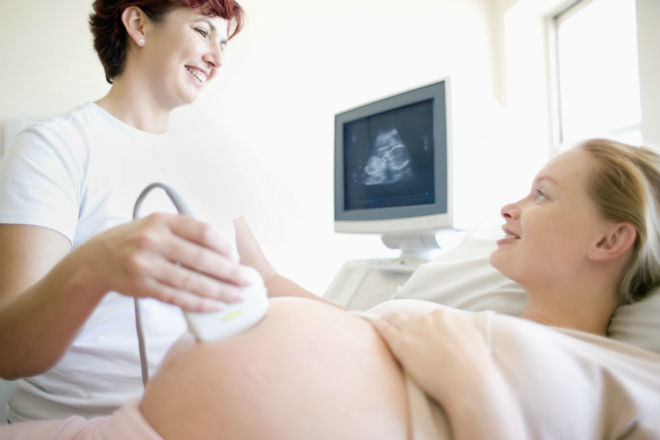 Pregnancy Screening: Gettyimages
Pregnancy Screening: Gettyimages
When is the first screening carried out?
What is screening? This is a complex of studies that can eliminate the risk of severe genetic diseases in the child, such as Down syndrome, Edwardasa, Patau. The so-called "screening of the first trimestas" is usually conducted at 10-12 weeks. It includes a blood test and ultrasound, during which the doctor measures the length of the embryo. At the first screening the normal fecal-parietal fetal size (CTE) at 10 weeks is in the range from 33 to 49 mm, at 11 weeks screening - from 42 to 58 mm, at screening at 12 weeks - from 51 to 73 mm. Also the doctor necessarily examines the nasal bone. If it is not visualized, this is one of the markers of the probable development of Down's syndrome.
Second Screening
But the important information - the boy you are waiting for orgirl - you will receive only during the period from 18 to 21 weeks of pregnancy. At this stage, you can order the results of screening the baby's photo. This screening is also called a triple test, because the attention is drawn to three indicators based on the results of a blood test:
- alpha-protein;
- free estriol;
- chorionic gonadotropin.
During an ultrasound examinationthe diligence of the fetus is determined, which can be the head (screening norm) and pelvic. Also, the doctor conducts fetometry: it determines the circumference of the head, the volume of the abdomen, the thorax, the length of the arms and legs, and examines the placenta state.
Timing for the third screening
At week 33, a third screening isreviews of experienced moms - the most exciting. The doctor fixes the mass of the baby (at the time of 32-34 weeks the estimated weight of the child should be about 2248-2750 g), the thickness of the placenta (normally from 26.8 to 43.8 mm), its presentation and maturity, and the volume of amniotic fluid should not exceed 1500-1700 ml). What changes occur with the child during this period can be seen in the video screening. Despite the fact that screening is carried out in all pregnant women, there are still disputes: does such a frequent "transmission" harm the child? Most mothers still give positive feedback about screening: after all, medical research is aimed at minimizing the risks of serious diseases.









